STATEHOUSE REPORT | ISSUE 22.06 | FEB. 10, 2023
NEWS: Eckstrom’s $3.5 billion accounting gaffe to lead to reckoning
NEWS BRIEFS: S.C. Senate passes new abortion ban
LOWCOUNTRY, Ariail: Flip-flops
COMMENTARY, Brack: Even the Murdaugh trial has moments of tedium
SPOTLIGHT: ACLU of South Carolina
MY TURN, Frazier: Lesson in humanity may be needed for police reform
FEEDBACK: Send us your opinions
MYSTERY PHOTO: Tasty photo
$3.5 billion accounting gaffe to lead to reckoning

By Andy Brack | A $3.5 billion accounting mistake over 10 years by state Comptroller General Richard Eckstrom may lead to a legislative reckoning as calls for his resignation mount. His office is in charge of authorizing state expenditures.

Eckstrom admitted this week that the state overstated its cash balances by $3.5 billion over the last 10 years because of double-reporting of some of its spending.
“As more information is brought to light, I suspect that there will be a call for all sorts of things,” state Sen. Larry Grooms, R-Berkeley, told Statehouse Report this morning. “This may prove to be the largest accounting error in the history of accounting errors.”
State budget experts emphasize the error isn’t a shortfall — that the state didn’t lose $3.5 billion of tax dollars — but that the Comptroller General’s office essentially twice counted money transferred to the state’s colleges and universities as a new computer system was installed. When it wasn’t caught initially, it kept making the same wrong assumption, year after year. Essentially, it kept revenue on its reports after it had already been transferred, making it appear in post-budget spending analysis reports that the state had more of a surplus than what was accurate.
“Nobody lost one dollar,” one insider said. “Nobody embezzled one dollar. It’s simply a reporting error.”
In fact, state budget writers use projections from a different office to make budgeting decisions and don’t rely on Eckstrom’s reports of what happened to spending after money has been spent.
Eckstrom, a former state treasurer elected comptroller general in 2002, acknowledged the error in a briefing document to state senators: “It had no impact on the state’s actual cash or on the state’s annual appropriation and budgeting process. Furthermore, the general ledger was correct throughout,” Eckstrom wrote, according to The State newspaper.
Calls for resignation begin
The error likely will lead to a day of legislative reckoning.

“The comptroller general will have a platform to explain the situation to the subcommittee of the Senate Finance Committee,” Finance Chair Harvey Peeler, R-Cherokee, said today. “I want to withhold any kind of pre-judgment until then.”
But he added it didn’t look good: “If you place an issue like this on a plate before you, all five senses will be bad as far as what I can see.”
Trav Robertson, a one-time deputy state treasurer who currently chairs the South Carolina Democratic Party, called for Eckstrom’s resignation.
“For all his serious faults, Richard Eckstrom is not a stupid man,” Robertson told Statehouse Report. “So the question becomes was this part of his scheme to cook the books to make the South Carolina economy look stronger than it actually is? Is this a scheme to pull the wool over the eyes of the credit rating agencies, the legislature or the SC Board of Economic Advisors?”
He said Eckstrom should resign immediately: “Richard Eckstrom, for 20 years, has crowed about how he is a great CPA. Either he withheld this information for personal or political reasons, or he’s lost his grip on doing his job. I’m not sure which is worse for S.C. taxpayers. He had one job and failed. This could cost taxpayers billions of dollars.”

When asked to explain, Robertson said credit rating agencies, which set bond ratings that impacts how much it costs for the state to borrow money, could lower South Carolina’s rating, which would make borrowing cost more in the future.
“It could potentially cost the taxpayers billions if the credit rating agencies feel misled and downgrade our credit rating. It could cost us if the feds decide to fine the state for the egregious error — this essentially amounts to lying about the financial stability of our state’s finances.”
According to the Comptroller General’s website, the office was created in 1890 to administer the spending of state funds, which was part of a system of checks and balances.
“All payrolls for state employees, vouchers for bills owed by the state and interdepartmental payments between state agencies are submitted to the Comptroller for processing,” the site said. “His office examines all payments to ensure they are properly authorized by agency officials, that funds are available to cover them, and that they are properly classified in the state’s accounting system. Upon approval, the Comptroller issues a warrant for each payment to authorize the State Treasurer to release the funds.”
- Have a comment? Send to feedback@statehousereport.com
S.C. Senate passes new abortion ban
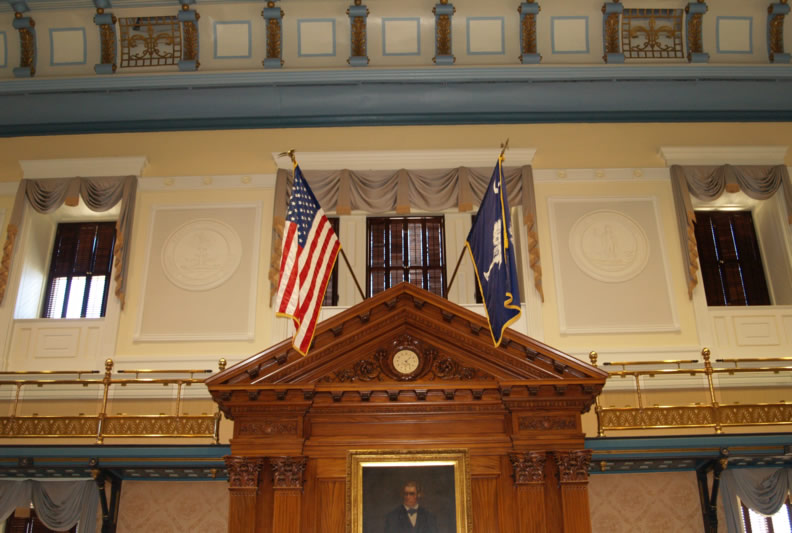
Staff reports | The South Carolina Senate passed a new abortion ban Thursday, claiming that several clarifications of the bill’s language and repeals of conflicting laws will satisfy a majority on the S.C. Supreme Court, now an all-male bench. Earlier this year, the court overturned a 2021 ban based on the state constitution’s right to privacy. But that opinion was written by Justice Kaye Hearn, who will be replaced by more conservative incoming Justice Gary Hill, who was elected Wednesday.
The revised Senate bill threw out a provision dating to 1974 that allows women to be charged and sent to prison for up to two years for buying abortion-inducing drugs on the black market or otherwise arranging an abortion at home, according to one media outlet. The measure also includes exceptions for rape, incest, fatal fetal anomaly, and the patient’s life and health up to 12 weeks.
However, differences with stricter proposals in the House could derail the effort to take away a woman’s right to choose once again. House Republicans have insisted they will accept nothing less than a ban at conception and are expected to approve their latest attempt to ban nearly all abortions next week, which would then be sent to the Senate. The competing bills could result in another stalemate like the one that scuttled last year’s effort.
In other news this week:
![]() More testimony – plus bomb threat – during Murdaugh trial. More than 200 jurors, witnesses and attendees of the double murder trial of disbarred lawyer Alex Murdaugh left the Colleton County Courthouse Wednesday after a bomb threat. It turned out to be a hoax. The 2.5-hour delay was the latest twist in a sensational trial being viewed across the world. This week, the trial featured prosecution witnesses describing forensic, digital and financial evidence.
More testimony – plus bomb threat – during Murdaugh trial. More than 200 jurors, witnesses and attendees of the double murder trial of disbarred lawyer Alex Murdaugh left the Colleton County Courthouse Wednesday after a bomb threat. It turned out to be a hoax. The 2.5-hour delay was the latest twist in a sensational trial being viewed across the world. This week, the trial featured prosecution witnesses describing forensic, digital and financial evidence.
Palmetto flag bill returns to the Senate. After a bill to codify an official state flag design died on the Senate floor last session the Senate’s Family and Veterans Affairs Committee unanimously sent a rekindled flag bill to the Senate floor.
Bill asking voters about taxpayer dollars to private schools advances to House. South Carolina voters could be asked in 2024 whether taxpayer dollars should flow directly to private schools. The measure would put the question on November 2024 ballots.
S.C. House approves bill allowing parents to sue over suspicions of racist lessons. Democrats argued against the measure, as bullying teachers into whitewashing the ugly parts of the state and nation’s history, while Republicans countered the bill is designed to ensure students are given facts instead of opinion while learning the past’s entire scope.
Online racetrack betting bill out of the gate in S.C. Statehouse. A bipartisan Statehouse bill called the S.C. Equine Advancement Act would legalize a limited form of online gambling on horse races.
McMaster tabs new Veterans’ Affairs director. S.C. Gov. Henry McMaster on Tuesday nominated retired Maj. Gen. Todd McCaffrey to head one of the state’s newest cabinet agencies.
S.C. Republicans to appeal redistricting case to U.S. Supreme Court. State justices ruled in early January that the boundaries of the First Congressional District in the Lowcountry passed by the Republican-dominated state Legislature were unconstitutional as a discriminatory racial gerrymander. Now, S.C. Republican lawmakers plan to take the case to the U.S. Supreme Court to avoid redrawing the map.
U.S. Senate confirms Benjamin to 4th Circuit Court of Appeals. The U.S. Senate in a bipartisan vote elected S.C. Circuit Court Judge Andrea Benjamin to the 4th U.S. Circuit Court of Appeals. She will become the second woman of color to serve on the Richmond, Va. court.
S.C. DHEC reports 5,463 new cases, 58 deaths for the week ending Feb. 4. For the week ending Feb. 4, state officials reported 58 people died from Covid-19 — 10 more deaths than the previous week. In this period, 5,463 new cases were reported — 164 fewer than the previous reporting period. Meanwhile, the World Health Organization (WHO) this month is drafting a legally binding treaty centered on making global access to vaccines, drugs and diagnostics more equitable in the event of another pandemic.
Biden delivers first State of the Union speech to divided government. In his first State of the Union address, President Joe Biden celebrated economic gains and appealed for bipartisan unity despite heckles from Republicans.
Flip-flops
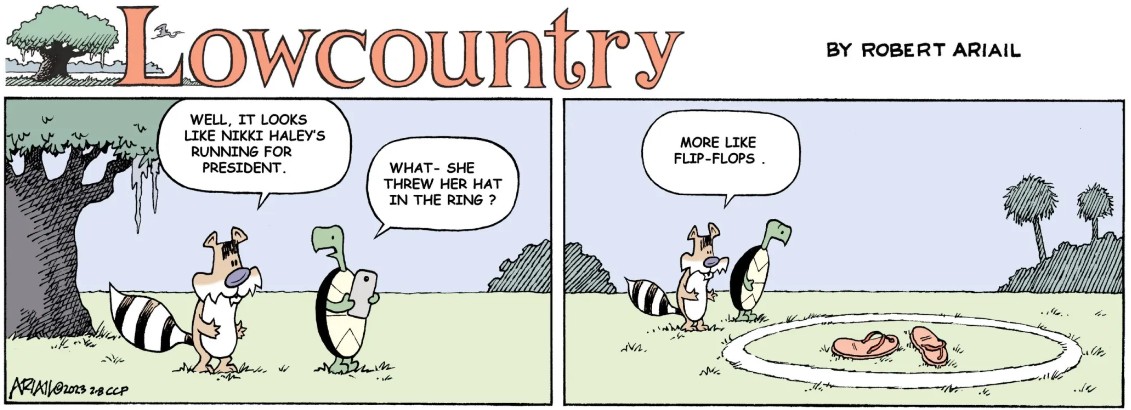
Presidential season is rolling around and cartoonist Robert Ariail is getting into the spirit of things. He often interprets things a little differently, but always has an interesting take on what’s going on. Love the cartoon? Hate it? What do you think: feedback@statehousereport.com.
Even the Murdaugh trial has moments of tedium
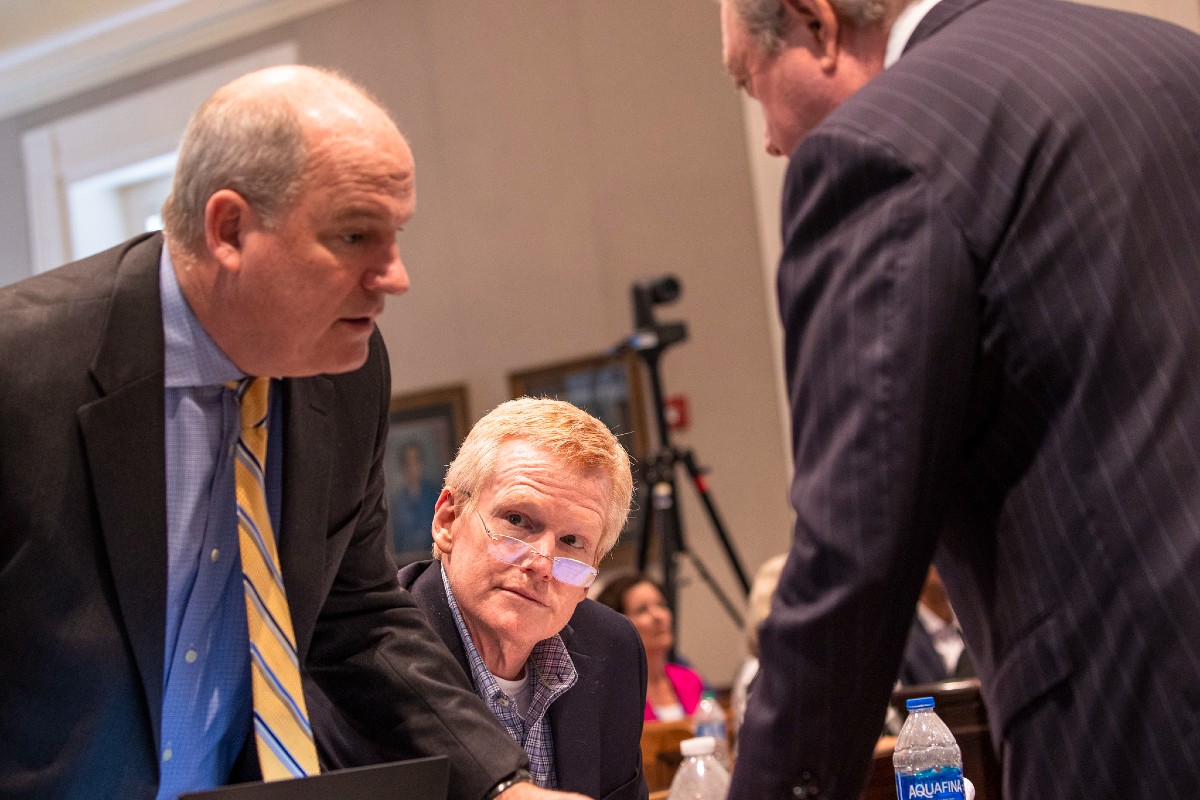
By Andy Brack | Though more than 200 people pack the 24 benches in the old courtroom in Walterboro, there’s a looming deathly quiet during the double murder trial of Alex Murdaugh, the disbarred lawyer whose rich family has been a big deal in the area for generations.
 You can hear the low whoosh of the air conditioning chilling the room. Someone coughs. A chair squeaks. But it’s really quiet overall. Still, despite microphones and speakers, you occasionally have to strain to hear and understand what a witness testifies as a dozen jurors and five alternates stoically, grimly endure what’s been dubbed by some as the “trial of the century.”
You can hear the low whoosh of the air conditioning chilling the room. Someone coughs. A chair squeaks. But it’s really quiet overall. Still, despite microphones and speakers, you occasionally have to strain to hear and understand what a witness testifies as a dozen jurors and five alternates stoically, grimly endure what’s been dubbed by some as the “trial of the century.”
It’s Day 14, the day after a bomb threat emptied the courtroom for two-and-a-half hours. It turned out to be a hoax. Three weeks ago, the trial for the murders of Murdaugh’s wife and son kicked off with a couple of days of jury selection plus some arguments about what would and wouldn’t be allowed during testimony. Since then, state prosecutors have called more than three dozen witnesses, several of whom detailed minutiae about cell phone records, financial information or forensic evidence found at the country estate where someone slaughtered two people in June 2021.
Murdaugh, the accused, sits between his defense lawyers. An experienced litigator, he might be mistaken as one of the lawyers. When he was brought in by deputies, he carried thick, expandible document-filled folders in each arm. But as he sits, often with his head tilted slightly downward, you occasionally see a gentle rocking motion that must soothe him, but looks fidgety. He chews on something. Every now and then, such as during the testimony of a best friend who said he was upset and angered by personal and professional betrayal, Murdaugh wipes his eyes.
The Murdaugh trial could go on for three more weeks. In a lot of ways, trials like this feature a lot of wasted time as lawyers get witnesses to testify, repeat and sometimes three-peat small details. It’s sometimes hard to figure out the relevance of what’s being said as prosecutors continue to build their case. For one-day visitors, it can be tedious. “It’s not Matlock,” one television anchor reflected, noting that long trials are slow-going and don’t fit into an hour-long show.
A 17-year-old senior from Dorchester Academy in St. George observed, “When you don’t understand what they’re talking about, it gets a little boring.” But she, like classmates in a criminal justice class, said they were glad they attended because they got a better understanding of the trial process.
Every morning around 8 a.m., members of the public start lining up to nab a seat in the courtroom before proceedings begin at 9:30 a.m. The audience is largely White with a healthy mix of older women.
After an hour of sitting on a thin, lumpy, upholstered tan cushion, the bench starts to feel hard. Soon, the judge breaks for a couple of minutes for people to stretch, but then it’s back to it. After three hours, the jury looks a little restless, seeming to squirm without actually being caught squirming. Moments after a key witness – that longtime friend and colleague – finishes, the judge calls for the lunch recess. The courtroom empties for 75 minutes as the audience heads for six food trucks and other locations to grab a bite before returning to get more lurid details in the afternoon.
The trial goes on, blistering the nightly news across South Carolina and the world as two dozen reporters churn out continuing coverage for print, television and digital consumption. In the days ahead, the air conditioner will continue to hum. Chairs will squeak. Gawkers will gawk. And there will be lots of quiet, joined occasionally by tears. And the grim jury will keep attentively listening so its members can do their duties to come up with a verdict.
Andy Brack is editor and publisher of Statehouse Report and the Charleston City Paper. Have a comment? Send to: feedback@statehousereport.com.
ACLU of South Carolina
 The public spiritedness of our underwriters allows us to bring Statehouse Report to you at no cost. This week’s spotlighted underwriter is the American Civil Liberties Union. The ACLU of South Carolina is dedicated to preserving the civil liberties enshrined in the U.S. Constitution and Bill of Rights. Through communications, lobbying and litigation, the ACLU of South Carolina works to preserve and enhance the rights of all citizens of South Carolina. Foremost among these rights are freedom of speech and religion, the right to equal treatment under law, and the right to privacy.
The public spiritedness of our underwriters allows us to bring Statehouse Report to you at no cost. This week’s spotlighted underwriter is the American Civil Liberties Union. The ACLU of South Carolina is dedicated to preserving the civil liberties enshrined in the U.S. Constitution and Bill of Rights. Through communications, lobbying and litigation, the ACLU of South Carolina works to preserve and enhance the rights of all citizens of South Carolina. Foremost among these rights are freedom of speech and religion, the right to equal treatment under law, and the right to privacy.
Frazier: Lesson in humanity needed for police reform
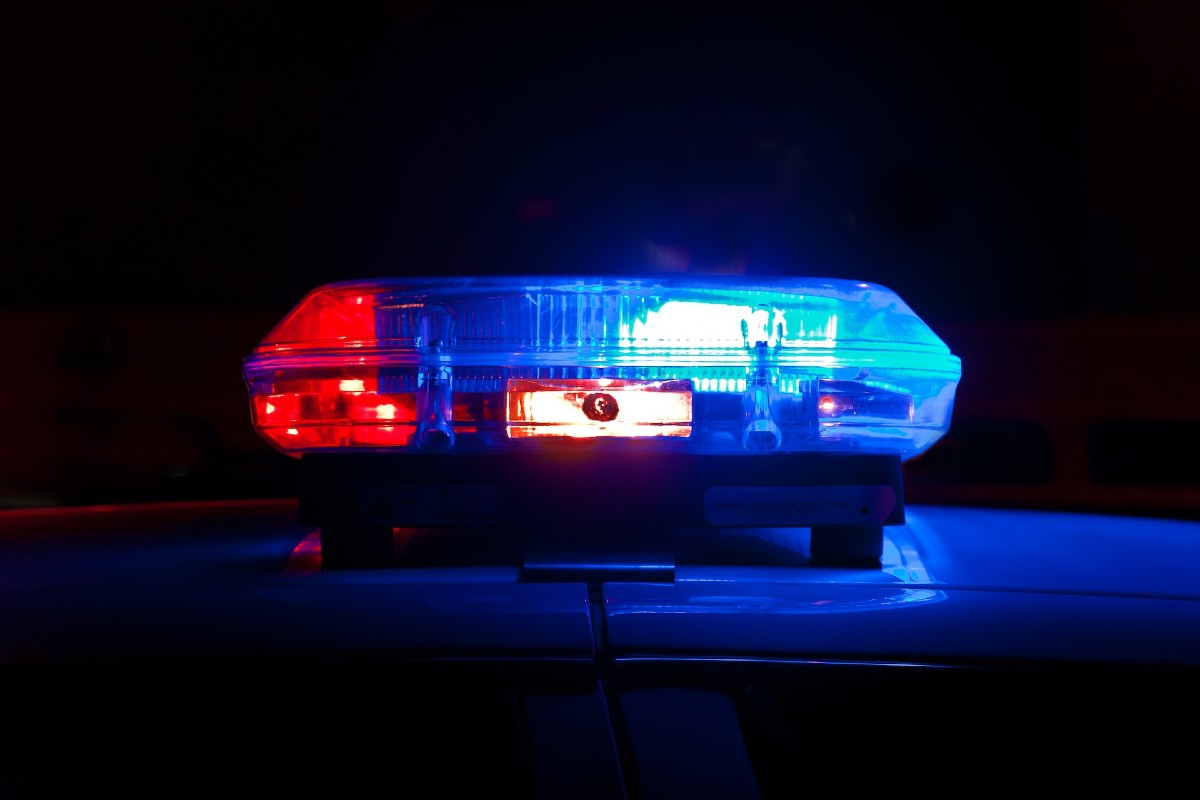
By Herb Frazier | I don’t want to watch the video of five Black Memphis police officers beating the life out of Tyre Nichols. News coverage of that horrific scene quickly convinced me I should not bring those horrendous images into my psyche.
Our minds are already polluted with the memory of videos of white police officers killing George Floyd in Minneapolis, Rodney Scott in North Charleston, Tamir Rice in Cleveland and others. Do we need to witness more police violence that disproportionately kills Black people?
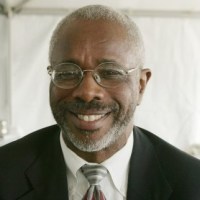 The most troubling aspect of this brutal beating of Nichols, a 29-year-old African American father of a 4-year-old son, is that it came by the hands of five Black police officers, each of whom took an oath to protect life. I struggle to comprehend how five Black men on January 7 could have kicked and punched another Black man — or any man to death — without one of them stopping it.
The most troubling aspect of this brutal beating of Nichols, a 29-year-old African American father of a 4-year-old son, is that it came by the hands of five Black police officers, each of whom took an oath to protect life. I struggle to comprehend how five Black men on January 7 could have kicked and punched another Black man — or any man to death — without one of them stopping it.
So-called Black-on-Black crime exists, but this is much more than carjacking. This was an attack on Nichols’ humanity by police officers who did it void of any compassion toward him as a fellow human being. This assault, which led to Nichols’ death three days later, provides yet another excuse for some to not trust the police. It advances the myth that Black males are inherently violent.
A retired Black Charleston police officer, who asked to remain anonymous, is surprised by what the nation saw. When he was on the local police force, Black officers, he said, would not have conducted themselves like the Memphis officers. Black officers, unlike white officers, he said, generally show more compassion because they understand the Black struggle in America.
Because the attack on Nichols violates any sensible use-of-force policy and the Memphis officers were part of a close-knit policing unit, the retired Charleston officer suspects Nichols was targeted to avenge a personal vendetta.
Surprisingly, the five officers were fired and then charged with second-degree murder with an unusual swiftness for these kinds of cases. A sixth officer, who is white, was fired recently. The licenses for two former Memphis Fire Department emergency medical technicians were suspended. They allegedly waited 19 minutes to treat Nichols, even though he was in obvious distress.
Nichols’ death has renewed calls for police reform. But we’ve seen this before. After a highly publicized incident of police violence toward people of color, a bright national spotlight is switched on. Then we talk about it, but nothing happens to break through the stubborn disregard in the U.S. Senate for Black lives taken by police. While the nation waits for Washington to move on police reform, there may be another path to follow.
Archbishop Desmond Tutu, the iconic voice among many who called for an end to apartheid in South Africa, evaluated the inhumanity of white minority rule through the African principles of “ubuntu.” Each of us are interdependent on one another with a responsibility for our fellow humans and the world around us. That’s the ethic of ubuntu.
I met Bishop Tutu briefly two decades ago at a reception in Cape Town. People were lined against the wall in a spacious room when Tutu arrived. Tutu, a hugger, embraced each of us before he spoke to the group. I didn’t know it then, but Tutu’s embrace was his recognition of our humanity.
In America, it appears that police officers, Black and white, and now even those who render medical aid, might need ubuntu training to reverse the trend of Black lives lost to police violence.
Award-winning South Carolina journalist Herb Frazier is special projects editor with the Charleston City Paper where this commentary first appeared. Have a comment? Send to: feedback@statehousereport.com.
Send us your thoughts
We’ve gotten some letters in the last few weeks – some positive, others nasty. We like to print non-defamatory comments, but unless you provide your contact information – name and hometown, plus a phone number used only by us for verification, we can’t publish your thoughts.
Have a comment? Send your letters or comments to: feedback@statehousereport.com. Make sure to provide your contact details (name, hometown and phone number for verification. Letters are limited to 150 words.
Tasty photo
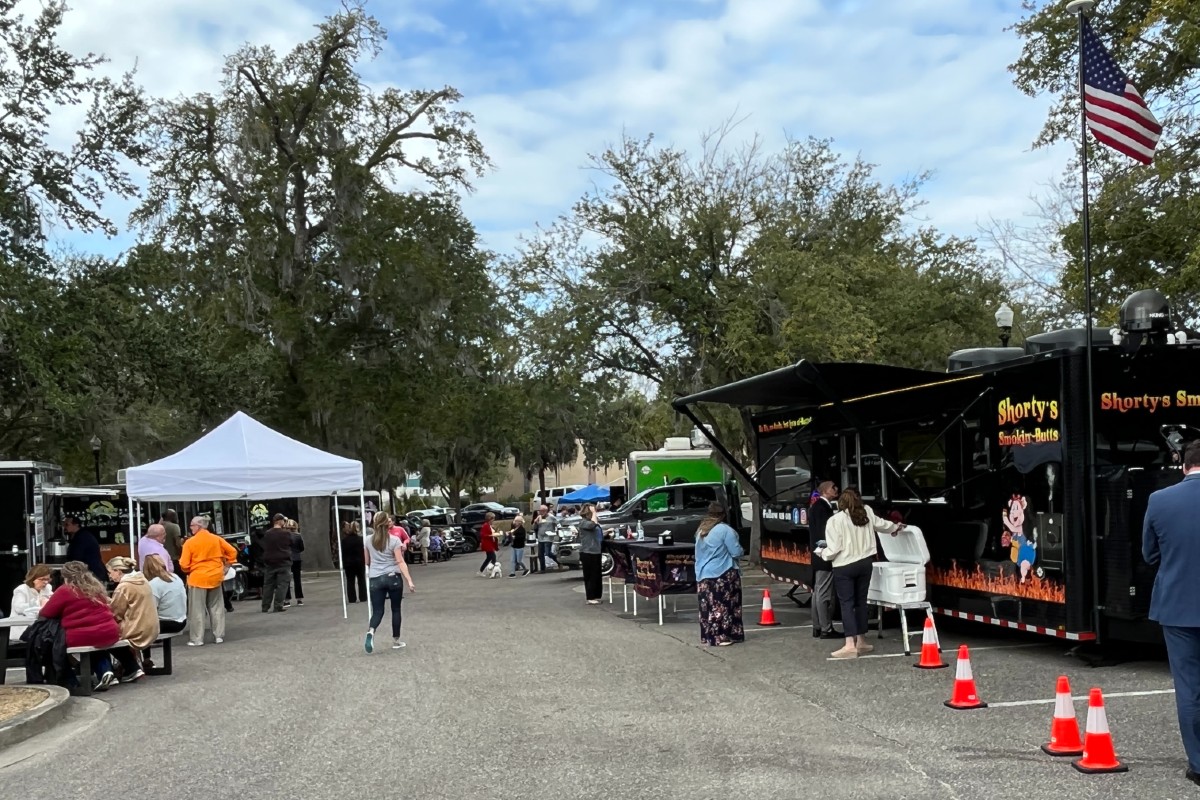
Where and what do you think this is in the Palmetto State? Send us your guess – as well as your name and hometown – to feedback@statehousereport.com.
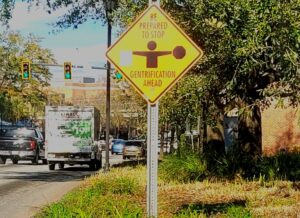 Last week’s photo, “Odd sign,” wasn’t a real sign used by the state Department of Transportation. It was a spoof on a sign by some guerilla artist complaining about all of the gentrification in Charleston. Read a story about it here.
Last week’s photo, “Odd sign,” wasn’t a real sign used by the state Department of Transportation. It was a spoof on a sign by some guerilla artist complaining about all of the gentrification in Charleston. Read a story about it here.
Congrats to those who correctly identified the artsy prank: Lane Goodwin, Elizabeth Jones and Jay Altman, all of Columbia; Frank Bouknight of Summerville; Allan Peel of San Antonio, Texas; Irving Rosenfeld; Barry Wingard of Florence; Pat Keadle of Wagener; Bill Segars of Hartsville; George Graf of Palmyra, Va.; and David Lupo of Mount Pleasant.
>> Send us a mystery picture. If you have a photo that you believe will stump readers, send it along (but make sure to tell us what it is because it may stump us too!) Send to: feedback@statehousereport.com and mark it as a photo submission. Thanks.
- ORDER NOW: Copies are in Lowcountry-area bookstores now, but if you can’t swing by, you can order a copy online today.
- Now available as an e-book!
ABOUT STATEHOUSE REPORT
Statehouse Report, founded in 2001 as a weekly legislative forecast that informs readers about what is going to happen in South Carolina politics and policy, is provided to you at no charge every Friday.
- Editor and publisher: Andy Brack, 843.670.3996
Donate today
We’re proud to offer Statehouse Report for free. For more than a dozen years, we’ve been the go-to place for insightful independent policy and political news and views in the Palmetto State. And we love it as much as you do.
But now, we can use your help. If you’ve been thinking of contributing to Statehouse Report over the years, now would be a great time to contribute as we deal with the crisis. In advance, thank you.
Buy the book
Now you can get a copy of editor and publisher Andy Brack’s We Can Do Better, South Carolina! ($14.99) as a paperback or as a Kindle book ($7.99). . The book of essays offers incisive commentaries by editor and publisher Andy Brack on the American South, the common good, vexing problems for the Palmetto State and interesting South Carolina leaders.
More
- Mailing address: Send inquiries by mail to: P.O. Box 21942, Charleston, SC 29413
- Subscriptions are free: Click to subscribe.
- We hope you’ll keep receiving the great news and information from Statehouse Report, but if you need to unsubscribe, go to the bottom of the weekly email issue and follow the instructions.
- Read our sister publication: Charleston City Paper (every Wednesday in print; Every day online)
- © 2023, Statehouse Report, a publication of City Paper Publishing, LLC. All rights reserved.


